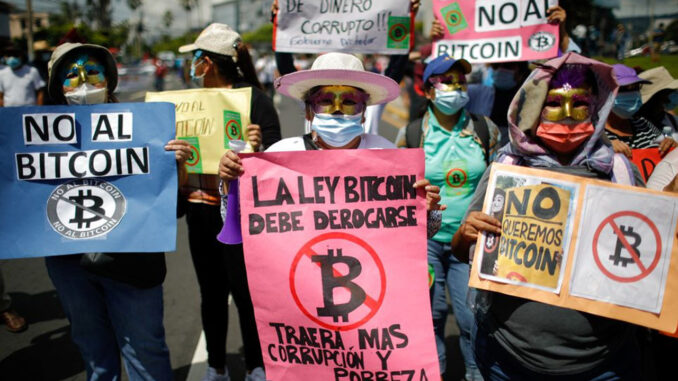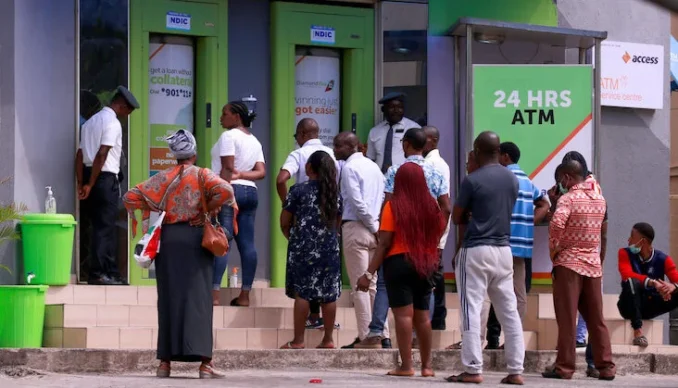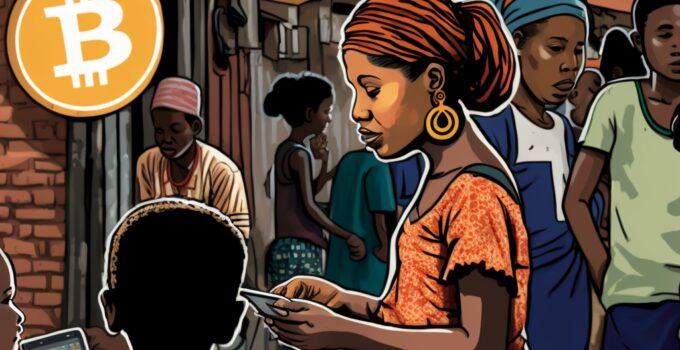Many people today perceive cryptocurrency as a way to earn money by investing successfully. That’s why so many crypto fans are interested in crypto market analysis to invest wisely.
Most people today already know how does cryptocurrency work, but not many people consider what opportunities it offers to developing countries. This article focuses on opportunities and challenges unbanked nations face regarding cryptocurrency adoption.
The Challenge of Financial Inclusion in Developing Countries

Source: guardian.ng
Most people are used to convenient online banking and the ability to access every service they require to facilitate their lives. However, that’s different from how it works in developing countries.
Underbanked populations in developing countries face numerous challenges that limit accessibility to financial services and the ability to get standard banking services. Thus, digital currency replaces the traditional system, giving more opportunities and access to necessary services. But first, let’s see what challenges underbanked populations face regularly:
- Lack of access to standard banking services. Due to the absence of banks or other financial institutions, many people in developing countries have limited access to the services they require. Thus, such an issue restricts their ability to deposit, withdraw, and transfer funds, making saving and managing their finances nearly impossible.
- Informal financial service. While most of us are used to ads promoting quick loans with no credit history checks and similar services, that’s what most unbanned populations face instead of traditional banking. These services can be useful for the lack of traditional banking. The problem is that these services are extremely expensive, and the person must return much more than they borrowed.
- High transaction fees. Traditional banking services can be available in some developing countries, yet they are extremely expensive for many people. Typically, the costs are associated with fees, such as ATM, account maintenance, transaction fees, and other fees. Thus, even though these services are available, they aren’t accessible cost-wise.
- Limited access to credit. Underbanked populations may find it difficult to start or grow businesses or invest in their education or home due to a lack of the ability to get loans. Thus, this lack of credit stagnates the entire economy because it’s so hard to launch a business.
- The lack of financial literacy. Many developing nations have low levels of financial literacy, making it difficult for people to understand the benefits of traditional banking services or the risks associated with informal financial practices (mentioned above). The lack of understanding leads to poor financial decisions.
Thus, the cryptocurrency infrastructure has a few benefits to offer. Even though using crypto requires understanding how it works, so it can’t help with financial literacy, it can aid with lowering fees and giving access to cryptocurrency financial services.
Cryptocurrency and Financial Inclusion

Source: cointelegraph.com
Cryptocurrency doesn’t depend on a central financial system or government to run it since it is based on blockchain technology which is completely decentralized. Thus, cryptocurrency can offer financial inclusion in the following ways:
- While traditional banking can be limited, cryptocurrency isn’t controlled by one entity. The decentralization of crypto guarantees that as long as someone has an internet connection, they can have financial transactions. People can invest in crypto and protect their assets against inflation in national currency.
- Low transaction fees. Traditional banking services frequently charge high transaction fees. Cryptocurrency typically has very low transaction fees, making it a more cost-effective option for money cryptocurrency money transfers.
- Fast transactions. Compared to traditional banking services, cryptocurrency banking offers transactions that can be processed quickly, often within minutes or seconds. Traditional services often take several business days. This speed is especially important for people who need to access their cryptocurrency savings quickly.
- Easy to use. Despite the stigma surrounding cryptocurrency’s complexity, it’s actually easy to use. All a person must do is access exchange via the internet, create an account, and buy desired coin or token.
All these inclusion options also come with global reach. Cryptocurrency doesn’t require converting it into a different currency, so you don’t even have to pay conversion fees. Thus, cryptocurrency offers great potential for underbanked nations.
Case Studies of Cryptocurrency and Financial Inclusion
Cryptocurrency offers access to financial services and provides independence to many underbaked nations or oppressed groups. For instance, in Kenya, women can’t launch businesses because they can’t even own property or livestock, let alone have bank accounts. Even though many women have found a way to use informal financial banking services, as mentioned in the article, they are too expensive. That’s when cryptocurrency can help.
This is just one example of an opportunity that women in the real-world managed to get access to through cryptocurrency. However, there are many more great examples of cryptocurrency adoption that enable underbanked populations to get access to financial services.
Africa

Source: theafricareport.com
Traditional banking services are overall uncommon in many African countries, and many people lack access to financial services. In some cases, bank offices are too far, and people can’t access them whenever they want; in other cases, there are no banks at all, or they have expensive fees. Cryptocurrencies are getting increasingly popular, particularly in Nigeria and already mentioned Kenya.
SureRemit is a Nigerian firm that uses blockchain technology to enable Nigerians living abroad to send money home to their relatives, thus encouraging cryptocurrency economic growth. Their payment system is much more affordable, making money transfers fast and cheap.
South And Central America

Source: cointelegraph.com
The most prominent example of cryptocurrency adoption is offered by Venezuela. Financial, social, and political instability in the country causes hyperinflation of the fiat currency. Salaries remain the same, while services and goods increase in price.
Thus, Venezuelan people have figured out a way to use cryptocurrency: investing in it to protect their funds from hyperinflation. Many Venezuelans turn to cryptocurrencies such as Bitcoin and Dash to store and transfer value, protecting their money from inflation.
People in Brazil also use cryptocurrency to get access to financial services. Like SureRemit (a Nigerian company), Foxbit, a Brazilian firm, uses blockchain technology to provide low-cost, safe remittance services to Brazilians living overseas.
Asia
Cryptocurrencies are being used to increase financial inclusion by people in countries like India and Bangladesh, where many individuals are unbanked. For example, in India, Bitbns is leveraging blockchain technology to facilitate low-cost, real-time, cryptocurrency peer-to-peer (P2P) transactions.
Similarly, in Bangladesh, SureCash is employing mobile technology to enable users to use crypto to make payments and transfer money freely and without high expenditures.
Challenges and Opportunities for Cryptocurrency in Developing Countries
Given all the information described above, one may assume that cryptocurrency is a one-size-fits-all solution. However, despite all the advantages, there are a few challenges to adopting cryptocurrency in developing countries:
- Many governments have failed to build clear legislative frameworks for cryptocurrencies, which makes it difficult for businesses to operate and consumers to trust the new technology. In some cases, countries even banned crypto usage, so using it’s illegal and dangerous.
- Technological issues. Crypto usage requires a smartphone, tablet, or computer, plus a connection to the internet. Some countries may not have access to these devices.
- Lack of understanding and fear of the unknown. Some people may hesitate to use cryptocurrency for fear of losing their funds.
However, there may be a few ways and strategies that can help in some of these cases. For instance, if governments are willing to help their citizens, they can organize educational events to help people better understand cryptocurrency. They may develop programs that facilitate access to the web and devices, such as smartphones. They can also create regulations that encourage citizens to use crypto.
Traditional financial institutions may also introduce ways to encourage crypto inclusivity. For instance, they may introduce tools to buy cryptocurrency via traditional banking services.
Conclusion

Source: blockonomi.com
Undoubtedly, cryptocurrency offers great opportunities to citizens of developing countries with little to no access to traditional banking systems and services. However, there are many challenges that these citizens and their governments must overcome to get all crypto benefits.





